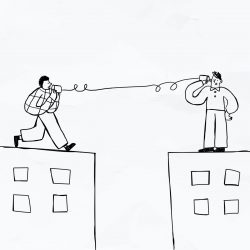
If you want to have better communication skills, listen up! In fact, listening is the single most crucial factor of all communication skills. It is more important than stirring oratory, more important than a powerful voice, more important than the ability to speak multiple languages, and more important than a flair for the written word.
Good listening is truly where effective communications and relationships begin. It’s surprising how few people listen well. Those who do are the ones who have learned the SKILL of listening.
The fact is that people love being listened to. It’s true in the business world and at home. Actually, it’s true of just about everyone we meet in life.
Dale Carnegie wrote that the secret … >>>
READ MORE >>> →






